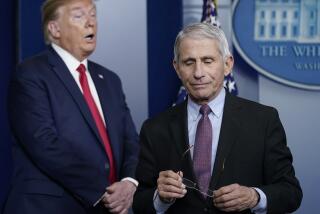Higgs boson: Was July 4 announcement a blow for U.S. science?
- Share via
As an American looking forward to Independence Day hot dogs, fireworks and beer, I must admit feeling more than a little peeved when it became clear last weekend that some kind of big Higgs boson announcement was in the works for the wee hours of July 4.
It had taken almost 50 years to find the elusive particle, which is believed key for the production of all the mass in the universe. Couldn’t these guys who detected it at CERN’s Large Hadron Collider have waited just 24 measly hours more to make their big announcement? At this point, was there really a rush?
Their decision, I was to learn, had more to do with Australians than Americans -- a big physics conference was launching in Melbourne on the 4th, and the brass at CERN, which is in Geneva, Switzerland, wanted to time their announcement as a “kickoff” event for the gathering. (Originally, the data were supposed to be presented in Melbourne in the first place, but as CERN scientists realized they were delivering big news, they decided instead to pitch their event at home.)
But I wasn’t alone in wondering where the U.S. fits into this week’s science news. As the Texas Tribune reported on Wednesday, the announcement possibly could have been made on American turf -- if Congress hadn’t scuttled construction of the Superconducting Super Collider in Waxahachie, Texas, back in 1993. That machine would have been larger and more powerful than the LHC in Geneva, and potentially could have found the particle, said University of Texas physicist and Nobel winner Steven Weinberg, in a television interview quoted in the article.
“This is a discovery that could have been and should have been made in America,” he said. “We are regretful that the United States Congress decided in this instance to turn its back on pushing forward the frontier of fundamental knowledge.”
Writers also noted the lost opportunity here, here and here.
It’s worth noting, however, that many, many Americans are members of the research teams at CERN. The California contingent alone is vast -- and high-placed. Joe Incandela, who presented the results Wednesday for the CMS collaboration, is a professor at UC Santa Barbara. Also on the CMS team are physicists from UC San Diego, UC Riverside, UCLA, UC Davis and Caltech. ATLAS, the LHC’s other Higgs-hunting team, counts scientists from UC Berkeley, UC Irvine, UC Santa Cruz and Stanford among its ranks.
Californians’ “contributions [are] too numerous to list,” one scientist told me.
At Scientific American, blogger Gary Stix praised the LHC’s international flavor as “the best face of what Big Science should be,” noting that “over 10,000 scientists from more than 100 countries pitched in, including nearly 2,000 from the U.S.”
Summarizing a new book on the supposed decline of American science, Stix wrote:
“After a 90-year run as unparalleled world leader, the U.S. has competition. But its sci-techno empire has yet to shrivel into irrelevance. A chapter on American science and globalization sums it up with this essential nugget: ‘Loss of dominance … is not the same thing as decline.’ ”
In the end, I was really happy with how my 4th turned out, 10-hour workday and all. (Actually, the work was a big part of the fun.) I hope U.S. physicists felt the same way.
-- for the Science Now blog







